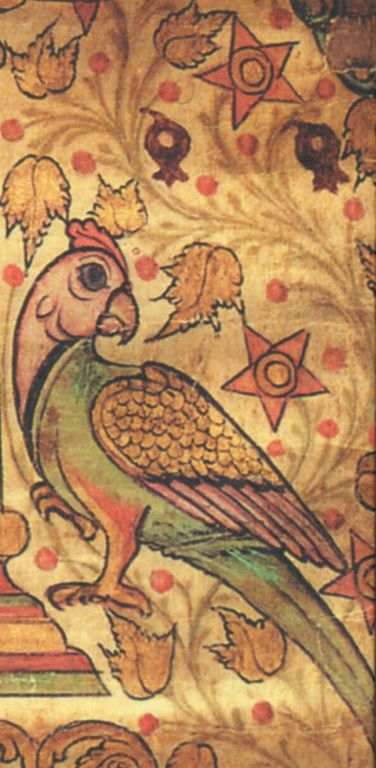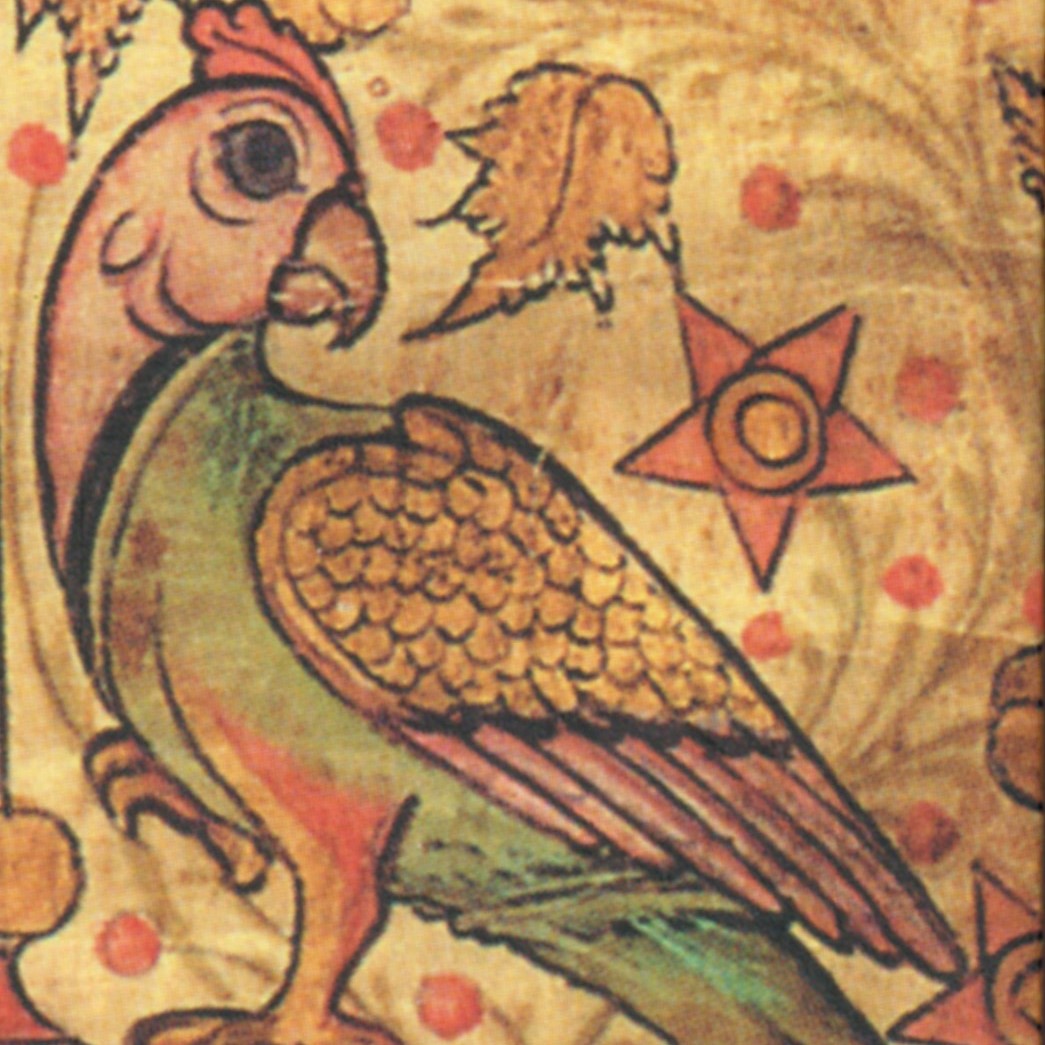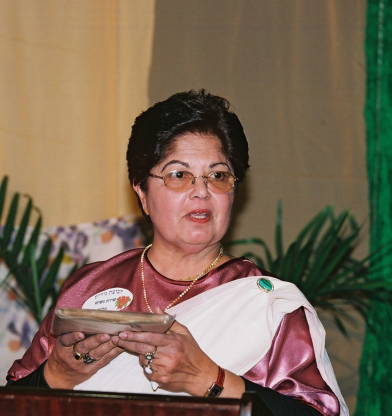2002
54. David and the Mosquito
The introduction to songs 54-55 is available here.
Venus Lane, Simcha Yosef. Recorded at NSA studio, June 9, 2002. CD Track 24; III-8.
Taṃbirān muyiṃbu tuņayāyirikkeņaṃ—tuņayāyirikkeņaṃ
Tandě tuņayālě śāūl hamelehu—śāūl hamelehu
1. Lord God Tambiran, be the first help for us; Tambiran, be our first help.
And so it was with Shaul Hamelek,[1] when King Saul inquired:
“By God’s grace,” King Saul requested, “By God’s grace,” he asked:
“Who will be able to kill the Philistine? Who is the one who can kill?”
Ishai’s son David—David ben Ishai—David then answered the king:
“By God’s grace, I’m the one who can do it. I am the one who can kill.”
“If you can do it, I’ll give you my daughter; my daughter then I will give.
And also my kingdom: half of my kingdom; half of it then I will give.”2. David Hamelek prayed before Tambiran; King David prayed to the Lord:
“In Your holy Presence I offer my praises; I offer my praises to You.
O my Lord Tambiran, God the Creator, You Who created me!
Suffering, I called out to God my Creator. In suffering I called out to God.
My voice was heard by God my Creator. My voice was heard by God.
Out of the great abyss I was rescued, saved from the depths of sin.
Over all nations, Lord, You are the ruler; You are the One Who rules.
Blessings and praises! With so many blessings I’m praising and blessing You.”3. “You I am praising in so many ways. I praise You for so many things.
O splendid Ruler of all the world, O God, Your Goodness is great.
But I have two problems I just want to mention, two questions I just want to ask.
It’s splendid to see the rain showers falling, splendid to see the rain.”
Before Lord Tambiran David inquired—King David humbly inquired:
“But why should there be a creature so fragile? A spider—now what is its use?
And why the mosquito, a creature so fragile, so small it can’t even be seen?”
Then the Father of Heaven replied. Thus came forth His word:4. “No useless thing have I ever created—not even one useless thing!"
David went searching the sea and the hills, a strong animal to find.
But no strong animal did he find there. Not even one did he find.
David Hamelek then climbed on a horse. King David mounted a horse,
Then David Hamelek fell into a pit. Then he fell into a pit.
There in the pit he composed the Psalms—one hundred and fifty psalms.
There he remembered the three Patriarchs. The Fathers he kept in his mind.
Like a swift tiger, he sprang from the pit. King David sprang out of the pit!5. Taking a stick, a slingshot he made. A fine catapult David made.
Taking the slingshot into his hand, he also took up a stone.
Goliath the Philistine came with his army. With his army he came.
Girded in armor, in armor of metal, Goliath the Philistine came.
Goliath the Philistine spoke to David. Goliath challenged him:
“A stone you are bringing to throw at a beast? Is that why you’re bringing a stone?”
“You are the one who is born of a beast!” Thus did David reply:
“And by the help of Almighty God, I’ll wipe you out!” was his cry.6. Then it was the mosquito decided, decided to humble him.
On Goliath the Philistine’s forehead, right on his forehead it stood.
Goliath the Philistine lifted his helmet. His helmet of metal he raised.
At that very moment, using his slingshot, King David flung the stone.
It struck on the head of the Philistine giant. On his forehead it struck.
The Philistine giant fell down and died. Goliath fell down dead!
The rest of the Philistines fled with the army. With the army they fled.
Mashiya[2] David wiped out the Philistine. Lord Tambiran be praised!7. Blessings, blessings, always blessings—forever and ever be blessed.
O Lord God Tambiran, be most blessed; forever and ever be blessed.
In the first stanza of “David and the Mosquito” when King Saul offers his daughter and half his kingdom to anyone who can kill the Philistine giant, the young David responds that he can do it “by the grace of God.” Then stanza 2 quotes his fervent prayers to God, drawn from verses in the Psalms, for which he is traditionally identified as the composer (Psalms 18:7–8; 130:1–2; 88:5,7; 72:6).
Stanza 3 then presents a dialogue binding together the two songs 54 and 55. David humbly inquires why the Creator made such apparently useless creatures as a spider and a mosquito, and God replies, “Not one useless thing did I ever create.” This exchange echoes a midrash, where the two insects mentioned by David in his inquiry are a spider and a wasp, not a mosquito (Ginzberg 1968, 4:89–91).[3] Before the song proceeds to the killing of Goliath, stanza 4 portrays David searching the wilderness and falling into a pit,[4] where he composes the 150 Psalms, remembers the patriarchs, and then springs out of the pit ready for battle.
The climactic battle scene described in stanzas 5 and 6 draws from the more elaborate biblical account of David’s killing of the giant (I Samuel 17), with the unique introduction of a tiny mosquito to explain how David was able to accomplish this amazing feat with his slingshot and stone. Why a mosquito rather than a wasp? Anyone who has lived in or visited Kerala can testify to the annoying ubiquity of its mosquito population and can vividly imagine the whining sound and infuriating itch caused by mosquito trapped in a closed metal helmet. The resulting image of the giant’s humiliating downfall is inherently humorous and entertaining. In Zacharia’s analysis (2005, 174), it adds a spicy poetic flavor to this lively song.
_______________________________
[1] Honorific for Saul the King. David is also referred to in the song with the honorific Hamelek, though he was, of course, not yet the king.
[2] See the commentary following song 22 (Brit Mila Song) for discussion of the unusual epithet “Mashiya David,” which is also found in songs 41 and 54. The common epithet “Mashiya ben David” reflects the belief that the Messiah will be a descendant of King David, not David himself.
[3] Though the midrash about the spider is similar to the narrative in song 55, the midrash about the wasp does not refer to David’s battle with Goliath, but to an entirely different escape from danger.
[4] Note the reference here to Psalms 40:1–2: “I put my hope in the Lord; He inclined toward me, and heeded my cry. He lifted me out of the miry pit….”







